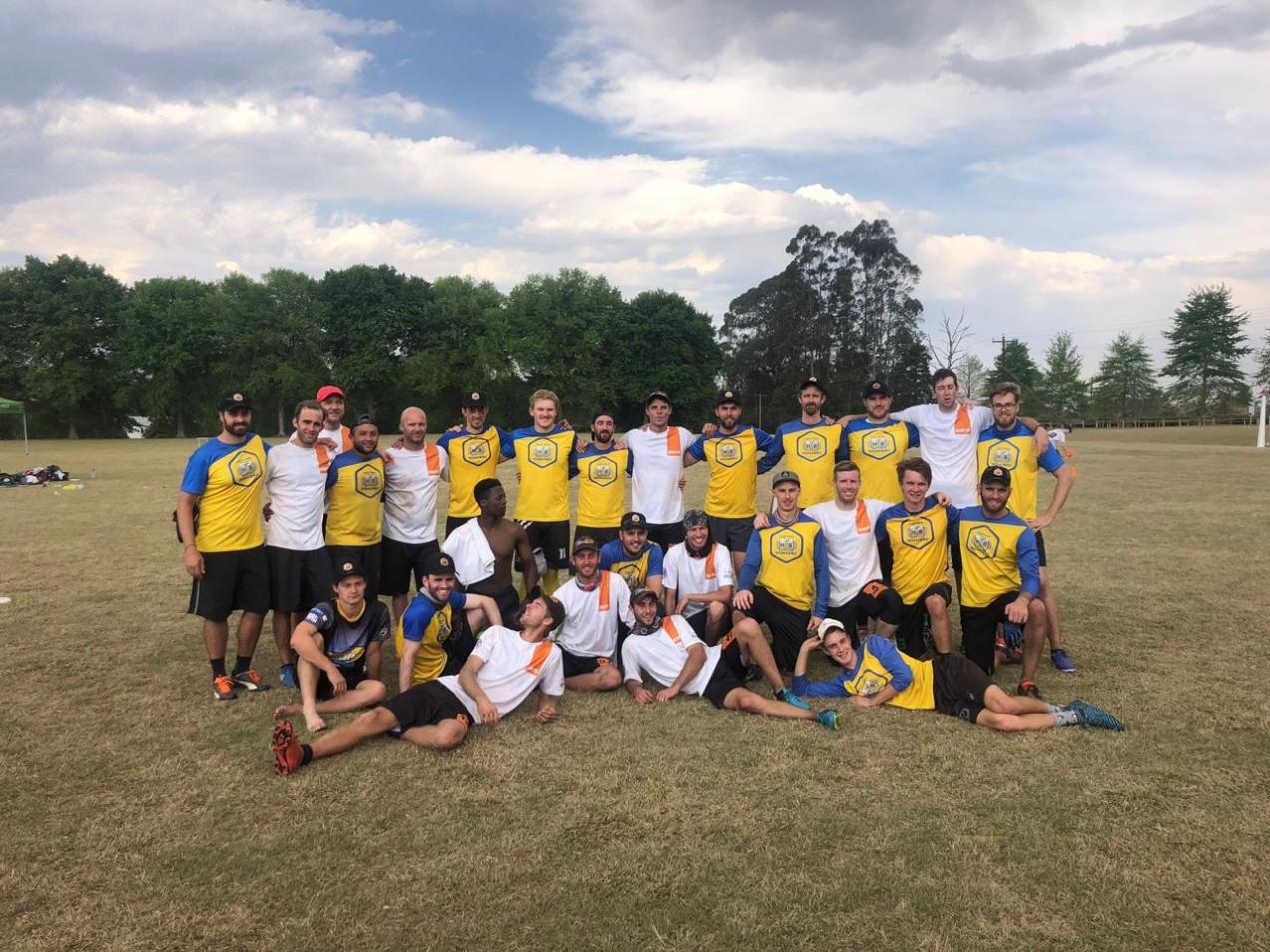It’s the 2018 Open Nationals final and HomeBru is lining up against the defending champions. In the pool stages, the Long Donkeys defeated us handsomely but this time, we felt we had adjusted and had the tactical nuance to challenge them for the title. But the men from Pietermaritzburg, a humble town in eastern South Africa, are ruthless. Almost every turn generated by their suffocating zone results in a deep shot they chase down. The Donkeys run away with the match while many of us look at our bootlaces on the sideline. Next year, we say, next year…
Our 2019 season starts ten weeks before the first pull of Open Nationals and has a solitary but significant goal: To beat the Donkeys. Their only loss in the Open division came six years prior, when Chili from Cape Town beat them in the final. Since, the Donkeys has had a stranglehold on the open division (and mixed, but that’s another story) in South Africa.
Over the course of our first training sessions, we are introduced to a strategy developed by the HomeBru Brains Trust to break their legendary zone and we drill to be much tighter on man-defence. The Yellow Submarine – as we had become known due to our yellow kit – has training twice a week, excluding a League match on Monday nights and the leadership threw in three full training weekends as we continued to sharpen our skills.
For Open Nationals, Homebru benefited personnel wise with some additions from the University of Cape Town who did not send a team following an admin slip-up, a harsh reminder that ultimate isn’t just played on the field. Complete with our new additions, our 17-strong squad descended upon the green pastures of the KwaZulu-Natal midlands primed and ready for the task at hand.
We proved we deserved our favourites tag on the opening day, comfortably putting away our opposition with clinical offence and throwing the odd zone. The closest scoreline was 15-10, but HomeBru was yet to hit top gear. Meanwhile, the Donkeys were as lethal as ever, crushing some teams 15-1 as they cruised into the final four.
HomeBru’s Sunday started with an 8am pull for the semi-final against an athletic Maties outfit who had given us trouble in League. Unfortunately for them, we would handle the prevailing gusty wind with more experience, patiently picking apart their flat zone to eventually go two breaks up. Now chasing the game, Maties turned to their hucking game, literally throwing caution to the wind, which gobbled up many attempts. Our best performance yet earned us a 12-6 victory and a chance to fulfill our destiny against the Donkeys in the final.
Whatever the weather, the Donkeys are a zone defence team. The former basketballers use their wingspan in a flat zone while their other athletes hunt down any deep threats. Sure enough, this was deployed in the opening points in the final. However, after HomeBru showed we had the patience to break the zone, they had to adapt. Up until that first half, the Donkeys hadn’t played a point of man defence all tournament and with their adjustment to man marking, we knew we had sufficiently rattled them. We even had the crowd in our favour despite the tournament being in the Donkeys’ neck of the woods.
But it was not enough.
The Donkeys’ man defence began to earn the turns they needed and they came out on top in a number of long points as the game began to get loose, desperation appearing across many faces. With cap beckoning, they were 12-10 up with HomeBru on offence. A sliding endzone shot was chased down in vain, the disc just centimeters out of reach from a laying out HomeBru cutter. The Donkeys worked their way back up the field and eked out the key score to make it 13-10, game to 14.
A layout block in the midfield effectively ended Homebru’s hopes and a final flick into the endzone saw the Donkeys dash our dreams and retain their title.
When you work so hard for something that doesn’t go your way, the loss is real. For months we had pursued this goal, our one-track mindset fueling us during training, motivating us in the gym and pumping us up for the tournament. Now there was no next session, no more drills, no more grinding, no more victories.
There was much emotion in the post-match huddle, which was only turned up to 11 when one of our players told us that his father had passed away that morning. He had taken the difficult and admirable decision to deal with it alone rather than change the focus of the day. We immediately circled around him in a group hug of condolence, sunscreen, dirt, sweat and tears.
Despite not achieving our goal, there was something special that happened to HomeBru this year. The Open division is still developing at the tip of Africa but we have established a strong club identity over the last few seasons and more importantly, a camaraderie that leaves us counting the days until the next season.
The Yellow Submarine will resurface in 2020 and I cannot wait.



